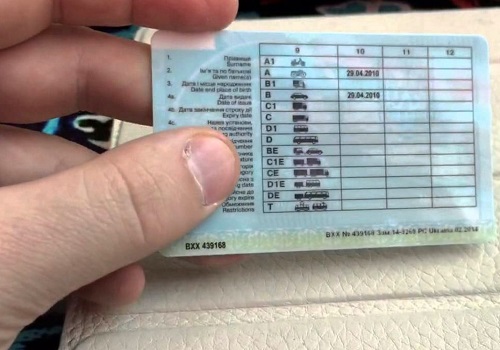Hello! My name is Kyrylo Tomakh, I am a practicing lawyer and co-founder of the law firm DKVA Legal Group. For over 3 years, I have been helping clients protect their rights, find solutions to complex legal situations, and successfully resolve disputes both pre-trial and in court.
It is possible to get a license after being suspended for drunkenness, but many cases occur precisely because of illegal actions on the part of patrol officers.
Deprivation of the right to drive a vehicle (vehicle) in Ukraine may occur in connection with violation of traffic rules, committing serious offenses or actions incompatible with road traffic safety.
The procedure for revocation of the right to drive is regulated by the legislation of Ukraine and usually includes the following stages:
The main grounds for deprivation of the right to drive are violations of the Road Traffic Rules (TDR).
Patrol Police and Special Service Units:
Patrol police, as well as other responsible services, have the right to stop and check drivers on the road.
Payment of a fine or serving a sentence:
Depending on the seriousness of the violation, the driver may be fined or sent to administrative or criminal punishment.
Deprivation of the right to drive:
In case of serious violations or repeated offenses, the driver may be deprived of the right to drive. It can be temporary deprivation or deprivation for a certain period.
Appeal procedures:
The driver has the right to appeal the decision on deprivation of rights in court.
Physical examination:
In cases where the disqualification is related to the driver's health, a medical examination may be carried out.
In Ukraine, the procedure for depriving the right to drive a vehicle is regulated by the following N-P acts:
Code of Ukraine on Administrative Offenses (ACC):
Chapter 12 of the ALCA is devoted to violations in the field of traffic, including important definitions and procedures for the application of administrative sanctions, such as deprivation of the right to drive.
Law of Ukraine "On Road Traffic":
This law defines the general principles and rules of road traffic, and also provides responsibility for their violation, including the possibility of deprivation of the right to drive.
Resolution of the Cabinet of Ministers of Ukraine "On Approval of Traffic Rules":
These Rules detail the rules of the law "On road traffic" and determine which violations can lead to the deprivation of the right to drive.
The Law of Ukraine "On Depriving Citizens of the Right to Drive Vehicles or a Driver's License" and Decree of the Cabinet of Ministers of Ukraine No. 1097 dated 12.12.2012:
These regulatory acts determine the conditions and procedure for depriving citizens of the right to drive.
Other normative acts:
Additional acts, including orders and orders, may be issued by the Ministry of Internal Affairs or other agencies to specify certain aspects of the administrative deprivation of the right to drive.
If there is a possibility of depriving you of the right to drive a vehicle in Ukraine, it is important to act responsibly and in a timely manner.
Here are some steps you can take:
Early reinstatement is also possible if you have a good foreclosure attorney. Assistance in restoring rights by a qualified lawyer should be provided in situations where you are dealing with unfair decisions, actions or other violations of your rights.
Get information:
Find out the specific circumstances that can lead to the deprivation of your right to drive. This may be due to violations of the Traffic Rules, administrative offenses or other factors.
Check the relevance of the information:
Make sure you are aware of all relevant facts and decisions, and that you have received all communications from the relevant authorities.
Consult a lawyer:
You will need help getting your driver's license reinstated if you have any doubts or questions about your situation. A professional legal opinion can be helpful in understanding your situation and determining possible actions.
Defend your rights:
If there is reason to believe that the suspension of your right to drive is unreasonable or wrong, you can file appeals or contest the decisions of the relevant authorities.
Follow the deadlines:
It is important to respond promptly to any notices or decisions regarding disqualification and meet all deadlines for filing appeals or other necessary documents.
Contact specialized services:
If you believe you are in the right, but you are still being denied rights, you can contact human rights organizations or public advocates for support.






























